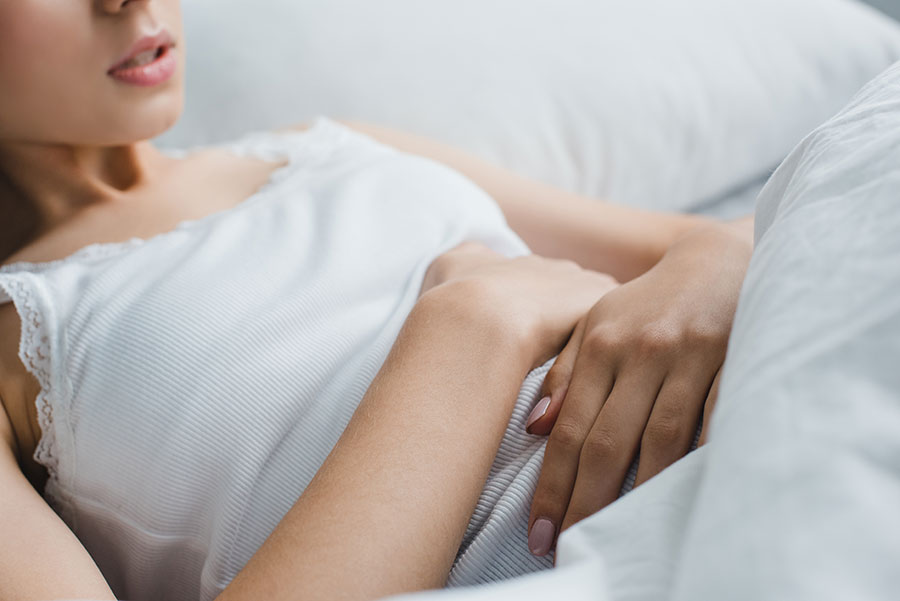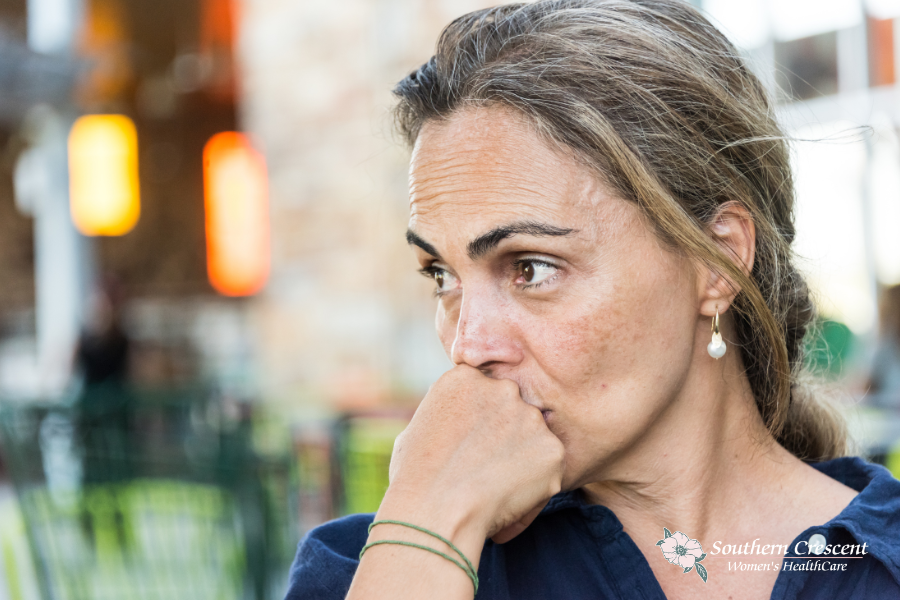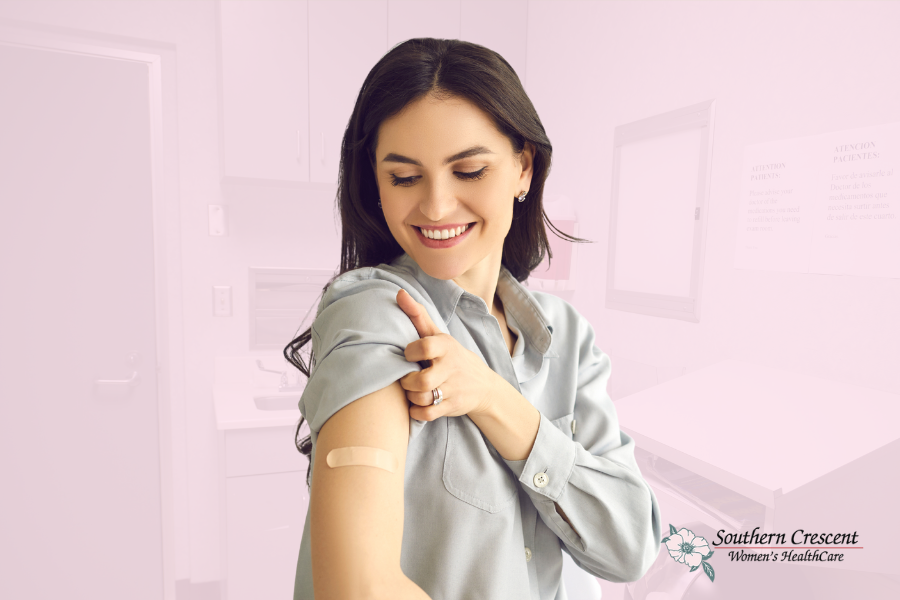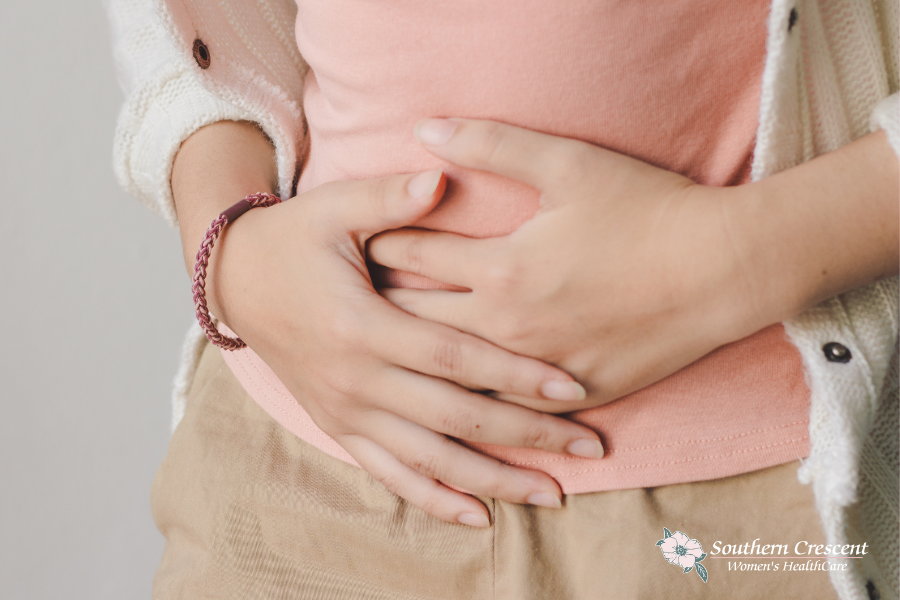Vaginal Dryness:
How to Get to the Bottom of Your Symptoms
If you’re struggling with vaginal dryness, you’re not alone. Many women experience the symptoms of vaginal dryness. And while it can happen at any age, it is most common as you get older and go through perimenopause and menopause.
This condition can make sex uncomfortable or painful, and you may experience discomfort at other times. Understanding what’s causing your vaginal dryness and treating the symptoms is essential for relief. The best way to do that? Seeing a women’s health specialist.
The providers at Southern Crescent Women’s HealthCare are here to help. Our years of experience diagnosing and treating vaginal dryness allow us to offer the best in gynecological care to women in Fayetteville, Newnan, and Stockbridge, Georgia.
You don’t have to live with vagina dryness. Keep reading to get to the bottom of your symptoms and learn how we can help.
Reasons for your vaginal dryness symptoms
Vaginal dryness usually occurs when women experience a drop in estrogen levels. While this often happens during perimenopause and menopause as you age, it can also occur because of pregnancy, breastfeeding, and as a result of certain illnesses or conditions, like breast cancer or medically induced menopause.
Besides hormonal shifts, other things can trigger vaginal dryness. Using products that disrupt your vagina’s natural balance, like soaps, lotions, and creams, can cause dryness in addition to burning, soreness, and itching. Certain chemicals used in birth control as spermicides can also trigger vaginal dryness.
While it might feel strange talking to your provider about this issue, it’s the best way to get to the bottom of what’s causing the problem. Once we understand why you’re experiencing vaginal dryness, your Southern Crescent Women’s HealthCare provider can recommend the right treatment.
Different ways to manage vaginal dryness
Depending on your symptoms and the severity of your vaginal dryness as well as the underlying cause, your provider may recommend different treatments. For example, over-the-counter (OTC) therapies can be enough for women with mild vaginal dryness.
With OTC treatments, be sure to use them regularly for effective relief. Apply vaginal moisturizers every 2-3 days to keep your vagina moist, and use lubricants every time you have sex. Other women may benefit from hormonal birth control to stabilize estrogen levels.
In more severe cases of vaginal dryness or for women seeking long-lasting relief, your provider may suggest laser therapy. This non-surgical, non-hormonal treatment is a good solution for many women.
MonaLisa Touch® for vaginal dryness
The MonaLisa Touch laser therapy is a minimally invasive treatment that restores your vaginal lubrication, treating the symptoms of vaginal dryness.
The laser energy gently heats the tissues of the vagina, stimulating your body’s natural collagen production. The boost of collagen strengthens your vaginal walls, improving tissue tone and helping with lubrication.
This increased collagen production lasts for several months, but the painless treatment takes only a few minutes. Your Southern Crescent Women’s HealthCare provider designs a personalized plan based on your specific needs, but many patients enjoy optimal results with three treatment sessions spaced 4-8 weeks apart.
If you want to learn more about treating the symptoms of your vaginal dryness, don’t hesitate to set up a consultation. Schedule an appointment at the Southern Crescent Women’s HealthCare location nearest you today.
Do You Know the 3 Stages of Menopause
Do You Know The 3 Stages of Menopause? Menopause is a natural transition in a woman’s life, marked by three key stages: perimenopause, menopause, and postmenopause. Perimenopause often begins in the mid to late 40s, lasting around four years, and is characterized by fluctuating estrogen levels that can cause irregular…
HPV Vaccination: Your Shield Against Cervical Cancer
HPV Vaccination: Your Shield Against Cervical Cancer Human Papillomavirus (HPV) is a common sexually transmitted infection that can lead to cervical cancer. Fortunately, the Gardasil®9 vaccine offers powerful protection against HPV and its potentially life-threatening consequences. The importance of HPV vaccination cannot be overstated. It protects against nine types of…
Endometriosis: The Silent Struggle Affecting 1 in 10 Women
Endometriosis: The Silent Struggle Affecting 1 in 10 Women Understanding Endometriosis: Symptoms, Risks, and Treatment Options Endometriosis is a chronic condition affecting 1 in 10 women of reproductive age. It occurs when tissue similar to the uterine lining grows outside the uterus, causing pain, inflammation, and scarring. Common symptoms include…




